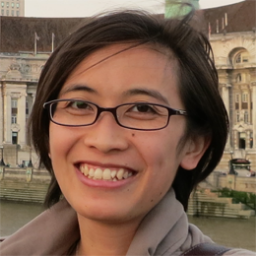About This Workshop
Open, online learning environments, such as MOOCs (Massive Open Online Courses) and open learning communities have been promoted as a way to expand equitable access to quality education. Such learning experiences are potentially enriched via extensive networks of peer learners. Even though challenges exist to realize these aspirations, open, online learning environments can serve as a mechanism for how we provide transformative learning experiences. This workshop aims to bring researchers, designers, and practitioners from diverse disciplinary backgrounds to explore how the body of CSCW knowledge can better support the vision of sustaining peer-to-peer learning in online environments.
Call For Proposals
Themes
We are interested in themes that leverage open and networked settings to engage learners from a diversity of backgrounds. These settings also include systems that enable learners to design learning experiences for other learners and any other emergent learning practices, peer-to-peer or otherwise, enabled by the networked and collaborative systems. The workshop topics and themes will revolve around these and similar topics listed below. We view these example topics as guide-posts:
- Design of online learning systems
- Peer-to-peer learning systems
- Learning analytics
- Equitable access and broad participation online
- Crowdsourced evaluation and other assessment methods
- Creativity
- Accreditation
- Badges
- Mentorship
- Peer feedback
- Learning webs
- Peer interaction and collaboration
- Motivation and engagement
Submission
Please submit a 2 to 4 page “vision” paper that connects to the workshop themes listed above. In this vision paper, select a setting or specific scenario related to online learning environments. Submissions should address three questions:
- What problem space in open, online learning environments are you interested in?
- What is your vision for addressing that issue or issues?
- How would you plan to carry out that vision?
In addition, provide a 100 to 150 word biography to describe your interests and skill sets you envision contributing to the workshop. We will review all submissions based on the relevance to the workshop themes, supporting a diversity of topics and disciplinary backgrounds.
Please format submissions in CHI Extended Abstract Format.
Activities
Part 1: Opening Plenary
- Jonathan Grudin, Microsoft Research
- Andrea Forte, Drexel University
- Philipp Schmidt, P2PU/MIT Media Lab
Part 2: Introductions
In one-minute, participants describe who they are and why they are in the workshop.
Part 3: Designing Futures Workshop Approach
- Critique: Participants generate 30 second statements of issues currently faced in open, online learning environments. This can draw from their workshop submissions or be inspired on-the-spot (example statements: learners cannot get help when they need it; or learning online is like tuning to a video broadcast).
- Vision: Turning critiques into brief 30 second positive statements addressing “What if open, online learning environments could be different? What would you make different?” Participants will be encouraged to not think of obstacles at this stage. Participants will vote on a small subset of visions to work on the next phase.
- Implementation:Participants will spend the bulk of their time in this phase, collaborating on plans to carry out the vision. This may involve generating project plans, articulating design principles, or paper prototyping. In small groups, the implementations will be presented/shared with other workshop participants.
Part 4: Next Steps
We will discuss future steps to sustain a community of researchers and practitioners, drawing from the visions and implementation plans of participants. Concrete plans and products could include: partnerships, designs and implementation projects, plans for research proposals, symposia or panel proposals for conferences, new empirical studies to conduct, or publications to write.
Organizers

Peyina Lin, University of Washington

Ricarose Roque, MIT Media Lab

Peter Wardrip, University of Pittsburgh

June Ahn, University of Maryland, College Park

Ben Shapiro, Tufts